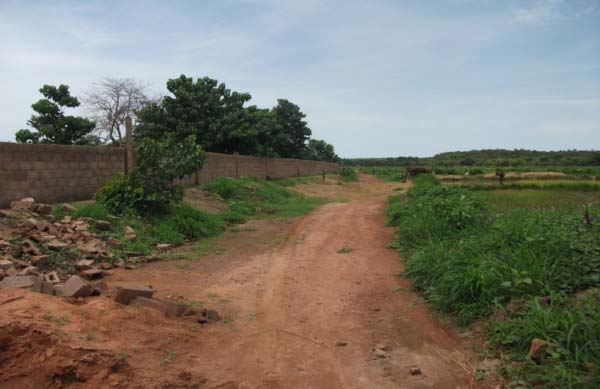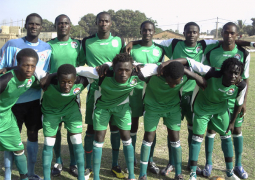
The rationale behind the visit was to look at how to minimize hippos’ rampages on rice fields along the river banks of the communities of Touba Demba Sama, Kununku, Sambel Kunda and Bush Town all in Niamina East and Upper Fulladu West District of Central River Region south and north.
Parks and Wildlife has successfully implemented a cooperative agreement between the department and wildlife management through its project – Gambia Biodiversity Management and Institutional Strengthening Project (GBMIS) and the local communities cultivating rice along the river to jointly construct fences.
According to the officials, a fence of 2m in height and about 2km long from Touba Demba Sama to Sambel kunda and 480m in Bush Town in Northern part of Central River region will be constructed.
Speaking at various sites, Mawdo Jallow, head of Research and Development Unit at the department, stated that the Department of Parks and Wildlife Management through its (GBMIS) has successfully constructed fences around rice fields in collaboration with local communities to prevent hippos from rampaging their rice fields in the area.
According to Mr Jallow, the project exercise was jointly undertaken by the local communities in partnership with the Government of The Gambia through the Department of Parks, which lasted for thirty days and completed this year.
The department has seen the need to intervene by supporting local farmers to realize their production in terms of rice cultivation, to alleviate poverty through achieving household food security, he noted.
According to him, hippo rampages are on the increase and one of the best ways to stop interference of hippos in the rice fields was to put up a fence between the river (hippos climbing area) and the rice fields which is about 15m from the river.
He said that more than 95% of Gambians depend on rice for feeding and cost of a bag of rice is beyond the affordability of an average Gambian; thus preventing hippos rampage in rice fields is paramount.
He assured the local farmers, especially those cultivating rice in the intervention sites, to cultivate more rice to achieve food security and reduce poverty; as the project will successfully prevent rampages of hippos.
Mr Jallow said the objective is to preserve biodiversity and natural resources as well as to strategize ways and means of maximizing rice production in the area.
He said the department is training local farmers to put up self-defence to avoid human wildlife conflict.
The hippos, Jallow said, have been very destructive on their rice fields.
But with the project, farmers will be free from hippos’ destruction on their rice fields, he noted:“It is high time that our Gambian farmers depended on their own grown rice to sustain their living.”
For his part, Musa Jobarteh, park warden, who also doubles as the project supervisor at the grassroots level, said the initiatives taken by the GBMIS Project are highly pertinent to the identification and conservation of ecologically sensitive areas, and one of the top priorities in promoting sustainable production was to promote and develop the livelihood of communities.
The overriding objective of the project is to prevent hippopotamus from infringing into community rice growing areas to maximize their potential crop productivity for the economic benefits of the communities of Central River Region.



